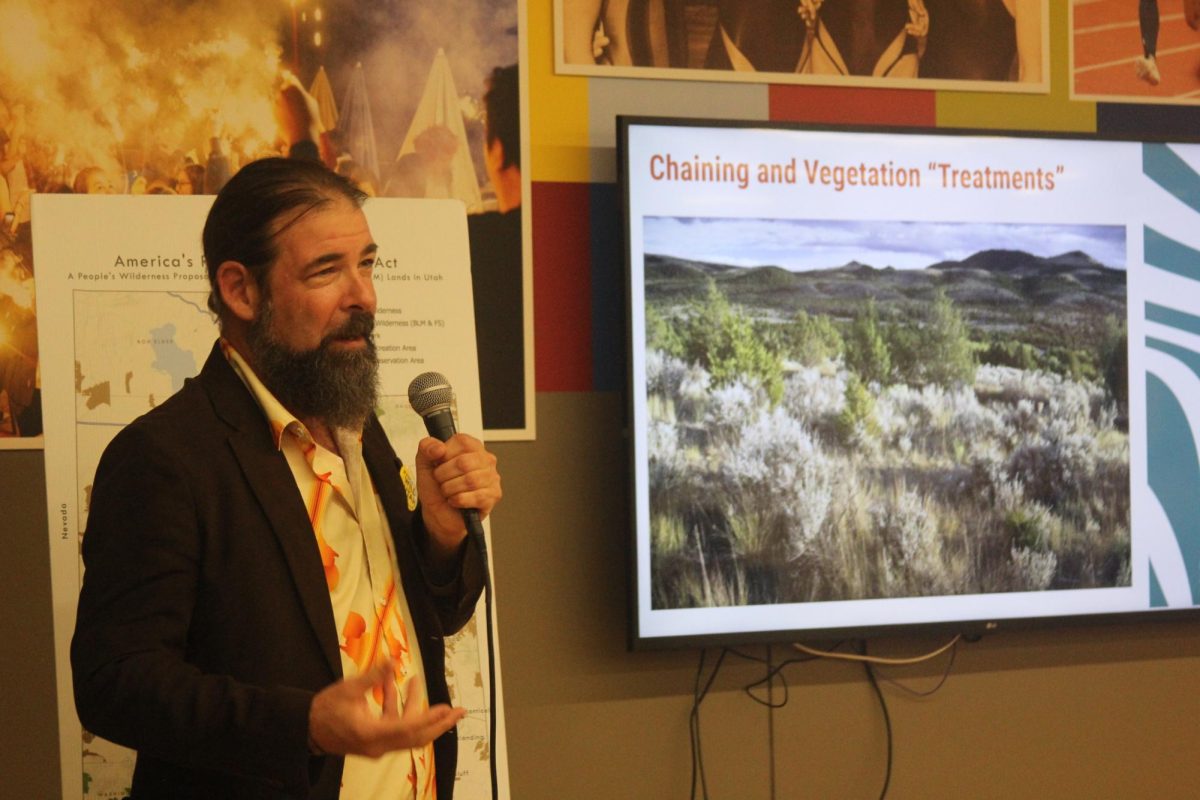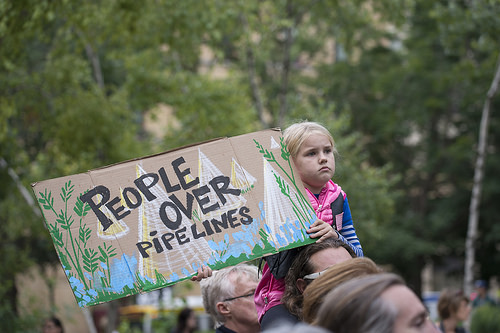On Sunday evening, the Army Corps of Engineers announced they will not grant the Dakota Access Pipeline the right to cross Lake Oahe, a Missouri River reservoir next to the Standing Rock Reservation. This move ends an 8-month standoff between a multi-billion dollar energy partnership and Native Sioux protesters and their supporters.
Now, the pipeline must be rerouted. The pipeline would have run from southern North Dakota to Southern Illinois, crossing bodies of water, and possibly tainting the water supply of millions of people.
Thousands have protested the pipeline since last April. They protested breaches of justice involving the owners having avoided environmental testing that could have shown the detrimental effects of the pipeline on the surrounding land and its inhabitants. They protested the violation of government agreements with the Standing Rock Sioux. They protested the disruption of sacred Sioux lands. Eventually, when law enforcement turned violently on the protesters, they began to protest the treatment of protesters.
Unarmed, peaceful protestors were met with military force including water cannons, tear gas, snapping dogs, and rubber bullets. It was the protests and the voices of the Sioux and land and water defenders that ultimately made this not so much a story just about crude oil or native people but instead, became a universal story of underdogs prevailing against big business and government. It became a story about the impact of peaceful protest and of spreading important information to the public. Unarmed protesters spent months peacefully standing in solidarity with the Native American People and in solidarity with the earth. In this story, peaceful protest won.
Owners of the pipeline, some locals, and their political supporters have decried the move by the Army Corps of Engineers while the protesters and their supporters are praising the decision. Supporters of the pipeline have said that the halting of the construction will have a chilling effect on companies seeking to build other similar projects.
This may be true, but companies should be aware of laws and policies that protect people and the earth. A positive outcome of the crisis would be greater awareness that people will not stand for destruction of land or the rights of people. A further positive outcome would be the energizing of large numbers of people to stand up against other powerful groups on behalf of the little guy. Now it is the time to stand by the thousands of other Americans whose rights are being compromised.
Flint, Michigan, still does not have clean water. According to Yahoo News, 49-year-old veteran and Flint, Michigan native, Art Woodson said, “In North Dakota, they’re trying to force pipes on people. We’re trying to get pipes in Flint for safe water.” The lives of people in Flint are at stake over lead-tainted water. Many know about it, but greater outcry is needed.
An important take away message from the Standing Rock crisis is that it is our duty to increase our awareness of the places where the right to clean and safe life-giving resources are compromised. Our fellow human beings wish to live peacefully and fairly. It should be concerning that some of our leaders believe that their lives do not matter as much as those of others.
We need to be aware that not everyone has the voice to protest dangerous conditions and we must stand with them. And we must remember that while rich and influential entities have a great deal of power, peaceful protesters spreading a reasonable message have more.






































































































